Building a Community Newsroom – the
“Scoop 3.0” Transition
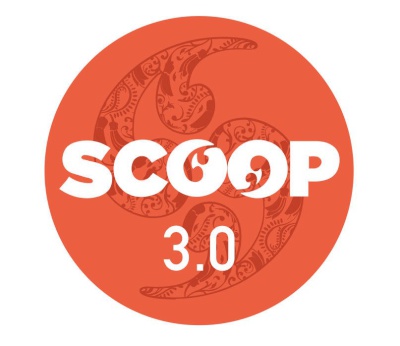
“The media crisis is producing
novel thinking, ideas and priorities. The stakes are high.
The future depends as much on the readers, viewers and
listeners of news media, as the
practitioners.”
- Vanessa Baird. A Better Media Is Possible. New
Internationalist
There is good reason to believe that a new path and a better future is possible for Scoop in 2019 as a pioneering independent Media company. A combination of new technology, ideas, institutions and business models and a renewed energy and commitment by the Scoop team, means Scoop aims to be at the forefront of the development of this renaissance that we term ‘News 3.0’. It is becoming increasingly apparent that digital Media companies must adapt to become more like technology companies in order to thrive in this modern environment.
However we must also ensure we do so ethically and with good processes and do not simply emulate the destructive and extractive elements of the tech giants. The key to achieving this is decentralisation and openness. By opening up Scoop’s structure to community ownership and exploring decentralised technology through the blockchain we can ensure the public has a stake in this enterprise and a say in its development. To support this plan please go to our current PledgeMe campaign for “Scoop 3.0”.
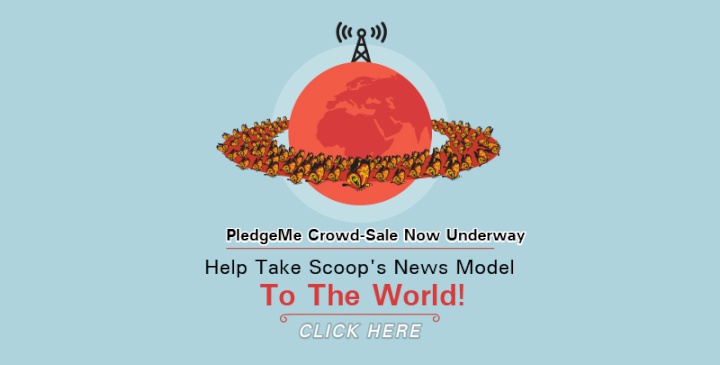
Why is this
necessary?
It is by now, no secret that the media faces a serious crisis. Last week, Scoop Co-founder Alastair Thompson wrote about the state of this crisis in 2018 here. As Alastair says:
“But if news dies,
then everything that we hold dear, our freedoms, our
organisation, the rule of law, all of it, will fail. Because
the Washington Post is right, Democracy will die in
darkness.”
Without a robust and independent press providing a check on politicians and companies our freedom is seriously compromised and we risk drifting further towards this metaphorical darkness - a society plagued by authoritarianism, elitism and inequality. Effectively, the rise of social media giants as the main mechanism of delivery of news to the majority of citizens has disrupted the industry and reshaped the way we consume news from media platform based to social media aggregator based consumption.
The adoption of non-transparent AI algorithms has led to extractive data mining of user information and increasing personalisation of news feeds by these players. This has enabled dark money to be poured into social media ads targeting specific populations to successfully influence public opinion and political elections and is polarising and dividing society into echo chambers or ‘filter bubbles’.
This process has also destroyed the ad-based financial models that companies like Scoop used to rely on in order to produce a sustainable independent news source to counter the increasing homogenisation and dumbing down of news media content. This has threatened the sustainability of our local news service over the past few years resulting in less funding for good quality original journalism.
Many other independent publishers have already succumbed so we count ourselves lucky to still be here. However, we are here in no small part due to our ability to successfully pivot and adopt new structures. Scoop formed a relationship with pioneering ‘business for social good’ hub Enspiral back in 2014 and this has borne fruit in the form of a new community of support and advice on effectively navigating the rapids. In fact, I personally came to Scoop through Enspiral to continue the great work of some colleagues who began the transition process.
In response to this crisis we created a new business model in the form of the ScoopPro “ethical paywall”. This model requires that commercial users of Scoop.co.nz pay a reasonable fee in order to access the Scoop site so that this same information remains free and accessible to the wider public regardless of their disposable income. This dual stream model is unique as far as we know and has potential to provide a new way of funding independent journalism globally. This ScoopPro model is 90% of the way to the goal of funding our core operations, and we have effectively reduced our reliance on advertising to a nearly insignificant amount.
Over 200 early adopters now hold ScoopPro licenses including Civil and Public sector organisations, corporates, Unions, political parties, media companies and SMEs who believe in our mission and this unique approach.
Here Comes
Everyone!
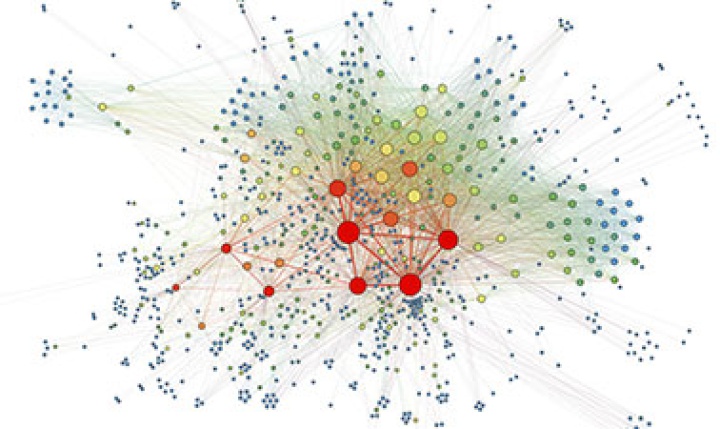
A new Media requires more open, decentralised business models.
“the crisis in the media is a moment of
opportunity to bring co-operative structures and business
models to the sector, and in so doing, better shore up the
social and democratic role of the media through a business
model based on using commercial success to provide social
benefit.”
- Dave Boyle. Good News Report Coops UK
The Scoop 3.0 transition will require systemic innovation in the form of better, more sustainable and resilient business models that bring readers and citizens into the equation as partners in the news creation process.
The reality is that economic structures built on value extraction (eg extraction of data, charging via traditional paywalls or using reader eyeballs as advertising fodder) cannot enable healthy information ecosystems. These systemic changes of making Scoop more decentralised, community-owned and locally focused will have the greatest impact on solving the crisis we face.
One of the most important innovations in the media sector is the systemic intervention of cooperative and community news ownership. Dave Boyle, who coordinated the Co-ops UK and Carnegie initiative Make Your Local News Work, published a report entitled Good News calling for an appraisal of co-operative alternatives in the News media.
The cooperative community ownership approach gives independent news media organisations like Scoop inbuilt resilience against further media consolidation and takeovers by large global players (such as Sinclair). As Boyle said in an interview with The Guardian in 2013, "The last thing you want are local media being part of very distant groups, often global media companies."

An exciting example of this cooperative approach is the case of New Internationalist which in 2017, launched the largest media industry community share offer to date. After selling shares for a minimum of 1 Pound, the esteemed magazine publisher is now the world’s largest community owned media company with shares held collectively by its staff and more than 3,000 of its loyal readers and supporters. Scoop hopes to adopt a similar approach next year, by allowing readers and even organisations that use Scoop to share in the ownership of the venture.
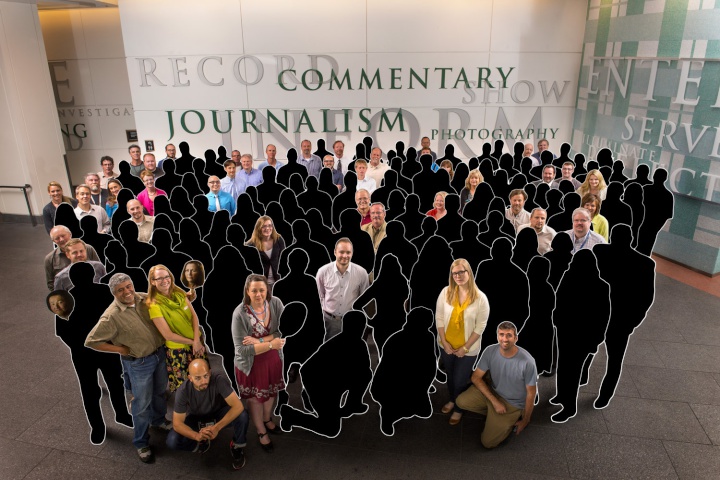
Meanwhile, in the USA a group of former Denver Post reporters and editors recently launched The Colorado Sun a local state online newspaper on the Civil blockchain network. A Kickstarter campaign for the newsroom raised over USD$75,000 over a month after a string of Newsroom layoffs and deteriorating morale at the Post following a change in the newspaper’s ownership. This new cooperative approach is a potential solution for journalists in precarious jobs seeking to regain some control over their livelihoods.
Decentralise everything -
Journalism and the Blockchain
New York startup Civil is itself an example of a decentralised media ecosystem utilising blockchain technology. The idea behind Civil is simple, yet in my view could be highly impactful. The mission is to power independent, sustainable journalism throughout the world. Civil’s approach to restoring alignment between reporters and readers is essentially to let readers "vote" with CVL tokens on whether a newsroom represents fair, quality journalism or not. The only way newsrooms can be challenged is if a majority of involved readers agree. Editorial decisions remain the domain of any given newsroom, however this system prevents content from being published to the Civil blockchain ecosyststem that does not meet certain minimum standards of authenticity and factual basis.
Civil is “trying to flip the system on
its head and create an environment in which journalists can
truly be beholden to their readers above all else, not to a
company with shareholders and ... a fiduciary responsibility
to maximize profits,” co-founder Matt Coolidge told CNBC.
The
evolution of Scoop 3.0 will include giving our staff,
readers and commercial users the opportunity to purchase
shares in the organisation as New Internationalist did in
the UK last year.
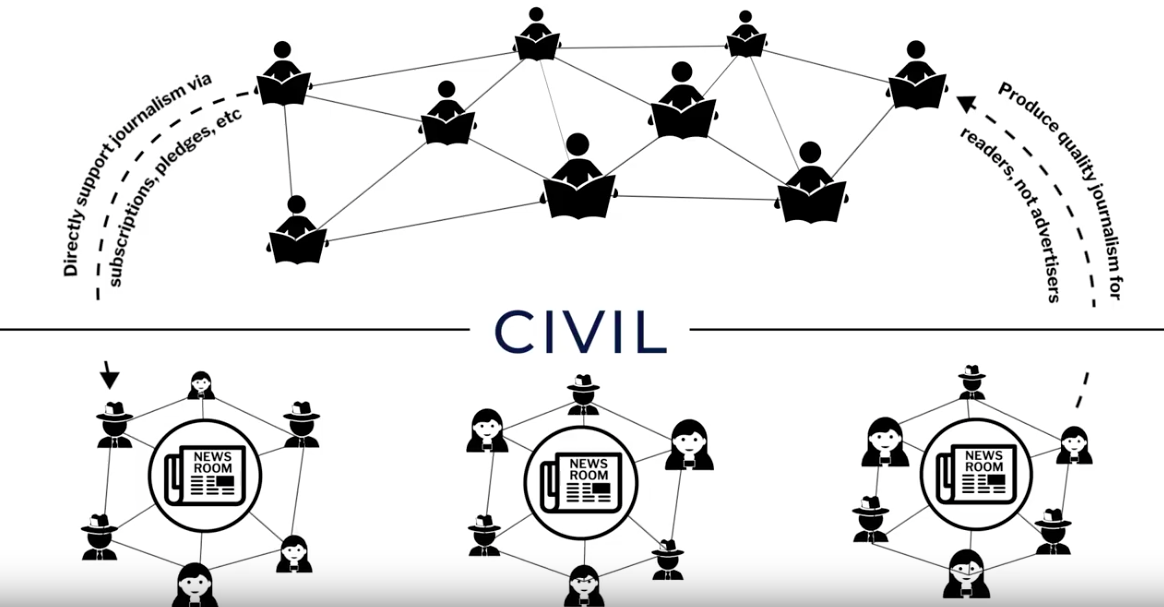
The Civil ‘Token Sale’ is just winding up and although they received over 2 million US dollars of support pledged in the form of agreements to purchase tokens, unfortunately their target of 4 million US appears unlikely to be met. So it looks like Civil will have to go back to the drawing board regarding fundraising. In the current crypto market, raising a significant amount through non-speculative tokens like this one is very difficult so it might be that Civil needs to look at alternative options. However, they do already have over 1 million US dollars of support guaranteed by their main funder – Blockchain technology startup ConsenSys. The thirteen Civil First Fleet Newsrooms have already launched operations on the Civil platform and Civil has also formed a partnership with The Associated Press so they will continue developing this idea despite this setback.
We aim to run a crowd equity campaign on Pledgeme in early 2019 in order to raise a significant amount (likely to be $500,000) to transition the Scoop publishing business towards a blockchain integrated functionality so we can integrate with a network such as Civil and integrate Scoop with the blockchain. What this means is that all Scoop articles are published to a permanent and unalterable archive so they can be authenticated and verified as the true original copy. This in effect means that Scoop will be uncensorable in the future by the state or other powers that may wish to limit our journalistic freedom.
By combining this blockchain technology with a more cooperative ownership structure we can build a truly community-owned and collaboratively operated journalism ecosystem in New Zealand. This will also make Scoop for resilient and secure by ensuring that a large sector of society and those regularly using Scoop have a stake and an interest in its success.
A New Scoop Media Technology
Startup

Part of this Scoop 3.0 transition plan will involve launching a media technology-focused operation out of Scoop as a profit making model utilising what is known as an open source Software as a Service (SaaS) model. This model will enable us to create a profitable media enterprise which will in turn support Scoop and the Scoop Foundation for Public Interest Journalism to meet the purposes of this Foundation in supporting quality public interest journalism.
This step of the plan will involve upgrading the core Scoop publishing technology and infrastructure with support from social entrepreneurs at our venture hub partner Enspiral. This approach will allow us to create useful Scoop media technology products that integrate with the blockchain journalism ecosystem and utilise technology such as AI and machine learning to enhance the useability of Scoop.
Adopting a more modern publishing system in this way will also allow us to make greater use of multi-media and design a new User Inferface with more emphasis on “media literacy”, or providing context and education to make readers aware of the significance of news media items. This could look like a platform with a more clear and useable layout with simple visual cues, and flexible options to delve deeper into stories. This will also ensure accessibility to the Scoop platform for readers of all physical ability levels.
This initial three month Scoop 3.0 campaign is the beginning of a process of ultimately transitioning Scoop towards this new business model and technology suite fit for the modern era of News. This process will involve the most comprehensive overhaul to date of the Scoop technology infrastructure. This will include upgrades to the software stack behind the scoop.co.nz website and associated sites to a modern platform. This improved Scoop 3.0 platform will be capable of making better use of video, audio, advanced analytics and new technologies such as blockchain, AI and even perhaps Virtual Reality or participation in direct democracy in the future.
Engaging the crowd in
Journalism
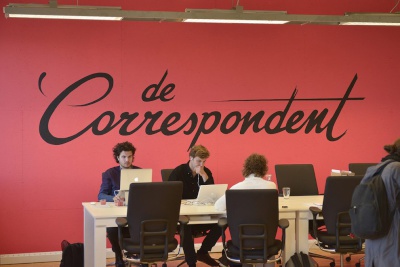
This new approach and new technology will also allow Scoop to provide a more decentralised system allowing for more participation and interaction by readers in the journalism process. For an example of this approach, look at the model of relentlessly successful Dutch media company De Correspondent which prides itself on a journalistic approach built on trust and engagement with its readers. Jay Rosen discusses the model in his article This is what a news organization built on reader trust looks like.
“What if news organizations optimized every part of the operation for trust? Not for speed, traffic, profits, headlines or prizes… but for trust. What would that even look like? My answer: It would look a lot like De Correspondent.”
This approach certainly does not mean handing over difficult and complex editorial decisions to readers, however it does increase scope for journalists to work collaboratively with a community of experts and readers on long term investigative inquiries. It seems from the De Correspondent’s astounding success globally that this is exactly what readers want in this complex age we live in.
The End Game - Open Sourcing
and Expanding the Scoop
Model
In summary, the long-term goal of this plan is to enable other independent newsrooms in NZ (and eventually offshore) to also connect to a blockchain journalism ecosystem and adopt the new Scoop technology by using Scoop created open source software products. This will enable us to offer our ScoopPro independent media distribution and monetisation model as an option for other local independent journalism enterprises to replicate. It will also allow us to spread the more cooperative approach to journalism and perhaps increase collaboration between the few independent media companies in New Zealand to form a participatory journalism ecosystem.
Scoop’s underlying model is innovative and pioneering globally. It provides a potential solution to the news crisis that is globally applicable. We now aim to expand the model by building a custom fit-for-purpose open source tech stack that can support other newsroom operations.This tech and the underlying IP of the ethical paywall business model will then be made open to all NZ news media organisations, with a focus on small local organisations such as community newspapers that are struggling to stay alive.This work will help us to support local and niche news services in NZ and eventually even expand globally under a Software as a service (SaaS) model to help make Scoop financially sustainable.
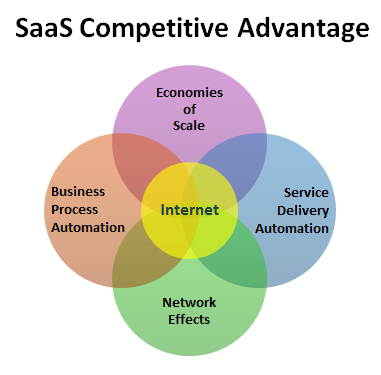
This transition will involve upgrading the ScoopPro professional information tools and services -(InfoPages and Newsagent newsletters and custom news intelligence features.) We will also seek to make these features available in simplified forms for non-professional readers.
Scoop’s press release publishing service, ‘ethical paywall’ model and related professional subscription tools offer a unique opportunity to provide a financial basis for a basic professional newsroom suite that is easily replicable and adoptable by others. We will then refine and package this entire approach into a software product and offer it to local and community-based news organisations or even emergent groups of collaborative freelancers in order to strengthen local independent news in New Zealand and globally.
Opening up the ScoopPro approach to a wider group will help to create a shared ecosystem for local and independent journalism in New Zealand from the ground up. This will help to enhance collaboration and solidarity among news publishers rather than competitiveness and clickbaitism.
Bundling the Scoop model and providing consulting services under a software as a service model could even provide some of the additional income and engagement required to help Scoop publishing survive and thrive into the future. This will also ensure the Scoop Foundation’s goals of supporting independent public interest journalism are achieved, and continue to provide financial support for truly independent and public interest focused journalism.
Why
should Scoop be focusing on such an ambitious
plan?
Scoop is well placed to achieve this plan for a number of reasons:
1 - We already have a unique platform and service with a point of difference. We publish a continuous and comprehensive press release feed and enable readers and professional users to deep dive into issues.
2 - Our business model as a non-profit owned by a Foundation enables us to decentralise and pursue a social mission without a need for profit to shareholders or excessive salaries.
3 - We have a good working relationship with Enspiral, a world-leading social enterprise network responsible for products such as Loomio and Cobudget and revolutionising the collaborative freelance workplace.
4 - We have a strong community of readers and supporters who believe in our mission and the need for independent public interest media in New Zealand.
In the current fast paced media environment, the better question to ask is perhaps why would we not do this? Media companies that fail to adapt to the rapidly moving technological developments will simply be left behind. Scoop has a proven record as a pioneer and early adopter of innovative approaches to journalism, and this is the way we intend to continue.
“Scoop 3.0” is ambitious, however it is also highly realistic and combines various approaches that are gaining increasing interest from media companies globally. A high-tech, high reader enagagement newsroom with distributed ownership and an open source software based business model is both a pragmatic and resilient business model for a media industry with an unstable and uncertain future. We call on our community and the organisations that read Scoop to step up to support this effort through the “Scoop 3.0” Crowdsale and crowdfunding campaign.
How To Support
This
Effort

The “Crowdsale” part of this “Scoop 3.0” campaign is aimed at organisations, and offers a 30% discount off an annual Scoop content use license and a subscription to the ScoopPro customisable media intelligence and PR enhancement service. This service is currently used by over 100 organisations and self-employed people and is proven highly useful to these clients across sectors.
The Crowdfunding campaign on the other hand is based at ordinary Citizen readers of Scoop. It offers rewards including a ScoopPro lite service for citizen media addicts and a limiteed run of Scoop custom-designed notebooks. This ScoopPro lite service is delivered at a lower frequency than ScoopPro and features options to subscribe to updates on topics of more general interest.
Currently, citizen readers have outpaced donations from organisations in the campaign, so we are looking for the organisations to step up to the challenge and help get us to the target of $35,000. We believe that this task should not fall solely on non-professional readers as organisations using Scoop for professional purposes have an ethical obligation to support Scoop as a resource.
To support as either a Citizen or as an Organisation you can go to PledgeMe and select the corresponding reward category.



 Keith Rankin: Make Deficits Great Again - Maintaining A Pragmatic Balance
Keith Rankin: Make Deficits Great Again - Maintaining A Pragmatic Balance Richard S. Ehrlich: China's Great Wall & Egypt's Pyramids
Richard S. Ehrlich: China's Great Wall & Egypt's Pyramids Gordon Campbell: On Surviving Trump’s Trip To La La Land
Gordon Campbell: On Surviving Trump’s Trip To La La Land Ramzy Baroud: Famine In Gaza - Will We Continue To Watch As Gaza Starves To Death?
Ramzy Baroud: Famine In Gaza - Will We Continue To Watch As Gaza Starves To Death? Peter Dunne: Dunne's Weekly - A Government Backbencher's Lot Not Always A Happy One
Peter Dunne: Dunne's Weekly - A Government Backbencher's Lot Not Always A Happy One Richard S. Ehrlich: Cyber-Spying 'From Lhasa To London' & Tibet Flexing
Richard S. Ehrlich: Cyber-Spying 'From Lhasa To London' & Tibet Flexing